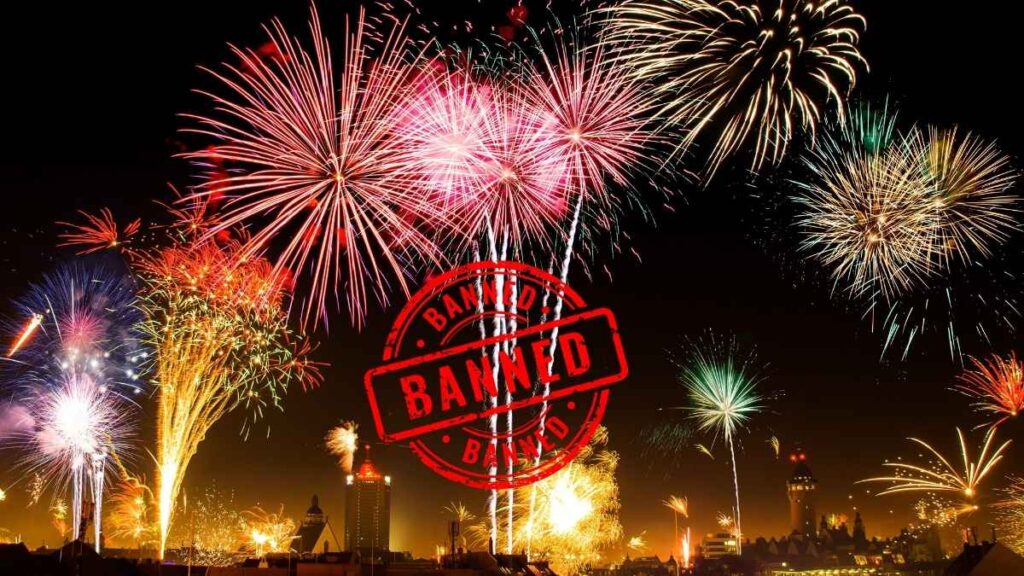The Delhi government has decided to enforce a year-round ban on firecrackers to tackle air pollution in the national capital, a move that prompted the Supreme Court to direct Haryana and Uttar Pradesh to implement similar measures.
A bench comprising Justices Abhay S Oka and Augustine George Masih issued this directive after reviewing the varying approaches of Haryana, Rajasthan, and Uttar Pradesh on firecracker restrictions amid deteriorating air quality in Delhi and the National Capital Region (NCR).
“For now, we direct Uttar Pradesh and Haryana to impose a ban similar to Delhi’s,” the bench stated, as per Bar and Bench. The top court is currently hearing petitions concerning air pollution in the Delhi-NCR region, where air quality has recently ranged between “very poor” and “severe” due to unfavorable weather conditions.
The Delhi government had previously imposed a firecracker ban until January but has now opted for a year-round prohibition, covering the sale, manufacture, storage, and use of all firecrackers. Advocate Aparajita Singh, appearing as amicus curiae, confirmed this decision in court.
Meanwhile, the Rajasthan government reported a complete ban on firecrackers in its NCR areas, while Haryana stated it would permit only green crackers. The Uttar Pradesh government, however, expressed reluctance to enforce a total ban.
After considering these positions, the Supreme Court emphasized that the ban would only be effective if all NCR states adopted a uniform approach. The court subsequently directed Haryana and Uttar Pradesh to implement a comprehensive firecracker ban.
In addition, the bench addressed the economic impact of pollution-related curbs under Stage IV of the Graded Response Action Plan (GRAP).
These measures include halting construction and demolition activities, restricting truck entry carrying non-essential goods into Delhi, and banning public infrastructure projects like highways and flyovers.
The court ordered all states to identify workers affected by these restrictions and provide subsistence allowances, urging authorities not to rely solely on technical registration requirements.
The court also instructed the governments of Delhi and other NCR states to form enforcement teams to ensure strict adherence to GRAP-IV regulations.
These combined efforts aim to curb both air and noise pollution while mitigating the hardships faced by workers dependent on affected industries.
If you enjoyed reading this article then please share it and bookmark our website for latest updates.

